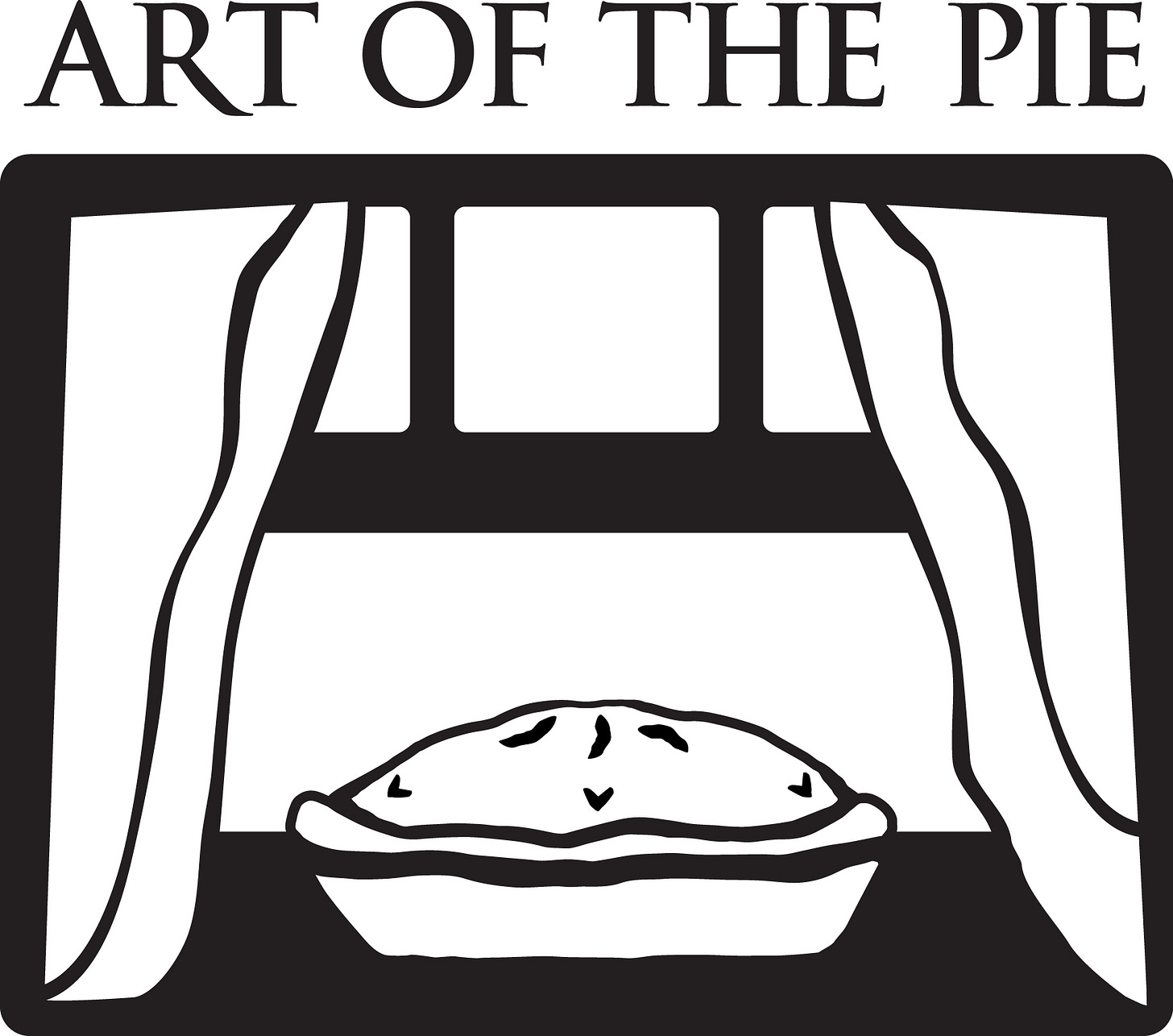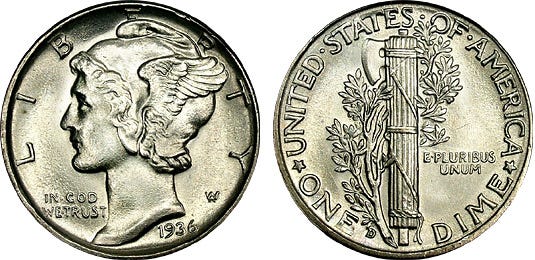# 338: Brother, Can You Spare a Dime
The time I emptied my wallet to give to another, the story of "Brother Can You Spare a Dime," and recipe for a Kitchen Cupboard Pie using ingredients you most likely already have on hand.
Decades ago, in my 30s, I have a mid-day appointment with my acupuncturist in Seattle. I will need to leave early in the morning to drive from the Olympic Peninsula, cross the Hood Canal and take the Bainbridge Island Ferry to get there in time. My wuzband will be working on the post and beam house we are building and will be the parent in charge of Duncan, our sweet two-year old toddler. D won’t have any problem with that as he loves “working” and climbing ladders to “help” shingle the house or spending time together on top of his dad’s shop workbench learning to use a hammer, screwdriver and drill. It’s no wonder that he can build pretty much anything now as an adult.
Travel day is a day off for me so after the appointment I meet up with a former music colleague for a sushi lunch at Musashi’s right across from the clinic and have a lovely visit to Nancy’s Sewing Basket, a favorite fabric store that even has a dedicated “Ribbon Room.” On my way back to the ferry I stop in at the Alaskan Way Cost Plus to “window shop” all the stuff I want but don’t need before heading home. So much fun!
After I park at CostPlus and get out of my car, I see a man standing outside the building. When I get close enough to hear he starts his pitch. “Hi there. Could you please help me out? I work at IBM just up the hill and have run out of gas. I only need a little money to get back to work.” And me, like a total dummy, take my wallet out of my bag, open it up and give him all the cash that’s in it—a ten, a five and a couple of ones. He thanks me graciously as he puts it in his pocket. You’re welcome I say and walk into the store for my “look-around.”
I figure he’ll be gone when I come out because he had to get back to work, right? But, he’s still there. I open the door of my car, sit down, watch him pitch to someone else and pocket what they give him. Oh well. It’s only money. It’s only then that I realize that when I give him all my cash, I have also given him the money I need for my ferry ride home. Well, poop!

I consider getting out of the car, going over to him and asking him for spare change from my earlier “donation” but think better of it. I have a credit card with me and, although I hate using it and often leave it home, this time I’m glad it’s with me. I start the car and see that he is now spinning his story to yet another as I pull out of the parking lot.
On a walk with a friend I am reminded of this time years ago as she tells me the story of an older hard-of-hearing shop-owner who doesn’t realize that a man who comes into her shop asking for money actually wants to rob her. He tells her he wants money from her till while pointing a finger at her under his tee-shirt as if it were a gun. She says to speak up. This goes on a few times until she says something like, “Sweetheart, I can’t understand you,” gives him a piece of paper and pencil and asks him to write down his question. When she sees “Give me money,” she takes her wallet out of her purse and says, “Here’s all I have, sweetie,” and gives him five dollars. He leaves, disappointed I would presume that there is no overflowing till as she would have been a very soft touch. Later that day, the police contact her and tell her that there is a robber going into all the business on the street asking for money and ask if she had she seen him. She responds “No, but there was a nice young man who came in saying he needed money. I gave him five dollars and he left.”
And one more thing about that guy in Seattle who asked me for money to get to IBM. I should have realized that it was a scam as there is no “IBM just up the hill.” And as far as I know, there’s never been an IBM in Seattle. Ah well. I hope he needed the cash more than me.
What I’m Reading
A Song in Search of a Title
⬇️This is from a larger article published by the Kennedy Center⬇️
In 1932, songwriters E.Y. “Yip” Harburg and Jay Gorney were working together on a number for a Broadway show called New Americana. Popular songs of the day were urging Americans to remain cheerful through the hard times by walking “On the Sunny Side of the Street,” pretending “Life is a Bowl of Cherries,” and believing “Happy Days Are Here Again.”
Harburg and Gorney’s song was taking a different direction, though. Gorney was basing the music on a lullaby he remembered from his childhood in Russia. He set the tune mostly in a minor key, one that suggests a sense of sadness and loss.
Harburg had some lyrics in mind, but the team couldn’t think up a title. They decided to take a break and take a walk in New York’s Central Park. A young man approached Gorney, his collar turned up and his hat pulled low. “Buddy, can you spare a dime?” he asked. The two songwriters glanced at each other and knew they’d found the words they’d been searching for.
“Brother, Can You Spare a Dime?” immediately hit a nerve in Americans’ hearts and minds. Popular crooners Bing Crosby and Rudy Vallee both recorded versions of it and the song blew the top off the music charts. For the first time since the Great Depression began, it seemed, someone had put words and music to what many Americans were feeling—fear, grief, even anger.
The song itself, though, angered some rich and powerful Americans. Pro-business leaders believed the tune was a dangerous attack on the American economic system. They tried to ban it from Broadway and block it from being played on the radio. But it was too late: The song’s popularity drowned out all grumbling.
Music, movies, family, and government aid helped people get through this dark period. The Great Depression, though, dragged on for more than ten years. For many Americans, “Brother, Can You Spare a Dime” became an anthem for that decade of hardship.
What I’m Listening To
Brother, Can You Spare a Dime?
Lyrics: E.Y. “Yip” Harburg
Music: Jay Gorney
They used to tell me I was building a dream,
And so I followed the mob,
When there was earth to plow, or guns to bear,
I was always there right on the job
They used to tell me I was building a dream,
With peace and glory ahead,
Why should I be standing in line,
Just waiting for bread?
Once I built a railroad, I made it run,
Made it race against time.
Once I built a railroad; now it’s done.
Brother, can you spare a dime?
Once I built a tower, up to the sun,
Brick, and rivet, and lime;
Once I built a tower; now it’s done.
Brother, can you spare a dime?
Once in khaki suits, gee we looked swell,
Full of that Yankee-Doodly-dum,
Half a million boots went slogging through Hell,
And I was the kid with the drum!
Say, don't you remember, they called me Al;
It was Al all the time.
Why don’t you remember, I’m your pal?
Say buddy, can you spare a dime?
What I’m Watching
A look at how government used to help families with small loans.
What I’m Baking
Recipe: Vinegar Pie
There’s a category of pies that I call Kitchen Cupboard Pies—also known as Depression Era Pies—that use sugar, butter, flour and eggs—ingredients usually found on hand. I included an entire section on them in Pie Camp: The Skills You Need to Make Any Pie You Want. Here’s one.
What You’ll Need
8 tablespoons (1 stick; 112 g) butter, softened
¼ cup (35 g) flour
1⅓ cups (265 g) granulated sugar
A pinch of salt
3 eggs
¼ cup (60 ml) apple cider vinegar (I use Bragg’s)
⅓ cup (80 ml) sour cream or whipping cream
¼ cup (30 g) chopped nuts (optional)
How to Make It
Preheat the oven to 325°F (165°C).
Roll out the pie dough, place in the pan, and crimp or flute edges. Cover with plastic wrap and place in fridge while you make the filling.
Cream the butter, flour, sugar, and salt in a medium bowl using a hand mixer or stand mixer.
Add the eggs one at a time, mixing after each addition.
Add the vinegar and sour cream, and mix until blended.
Fold in the optional chopped nuts.
Place in the chilled pie shell and bake for 50 minutes. Let cool.
Nice Things To Do














By the way, Kate, Great job with Brother, can you spare a Dime’
That’s a great idea, Mary Jane, having some care packages available, along with a note of encouragement. A thoughtful gift, kind word, and smile can do wonders to lift one’s spirits.